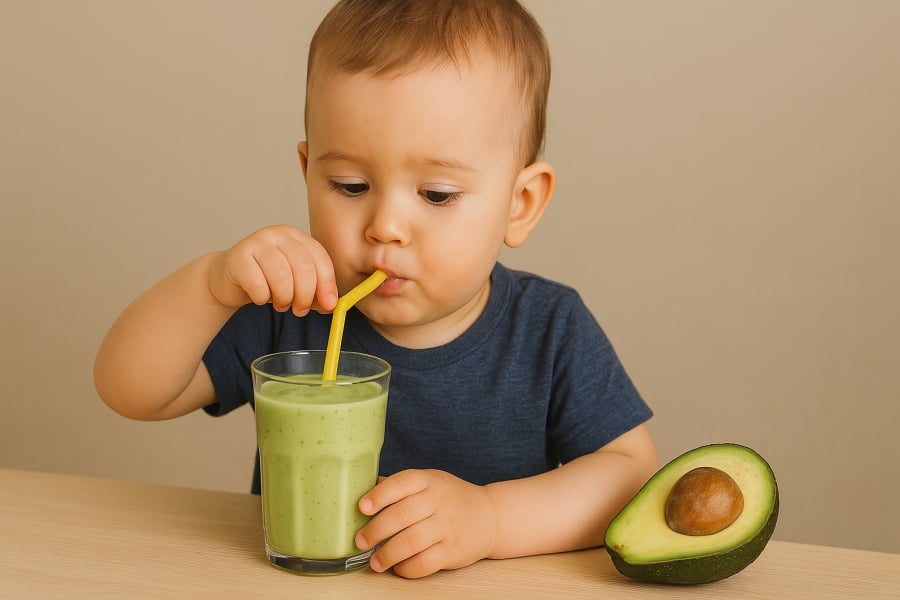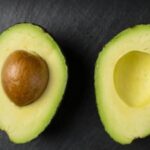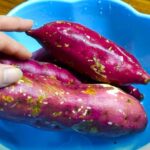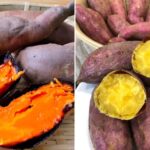I vividly remember the early days of my child’s birth; every movement and every giggle melted my heart. I realized that caring for my child was not just about feeding and clothing them but also an art of nurturing through the smallest things, starting with a bowl of porridge and a glass of milk every day. Nutrition not only provides energy but also shapes their physique, intellect, and character.
To help mothers choose the best foods for their children, I’ve compiled a list of the top seven healthy, nutritious, and easy-to-prepare foods to ensure your little one gets the very best!
Yogurt, a Digestive “Lifesaver” for Infants
Yogurt is a tasty snack that provides ample protein and vitamin D, strengthening your baby’s bones and teeth. Notably, probiotics in yogurt balance gut bacteria, boost digestive health, and prevent constipation. I usually opt for plain Greek yogurt, which is naturally rich in protein. Check the labels to ensure adequate vitamin D content, and feel free to mix in fresh fruits, oats, or honey for enhanced flavor and nutrition.

Beans, a Natural Treasure Trove of Fiber and Protein
Beans are a nutritional “treasure,” offering plant-based protein vital for the development of your child’s muscles, bones, and cells. Varieties like black beans, lentils, and chickpeas can easily be incorporated into soups, stews, and salads. The high fiber content promotes healthy digestion, prevents constipation, stabilizes blood sugar, and keeps your little one feeling fuller for longer. Beans also pack essential vitamins and minerals such as iron, folate, magnesium, and potassium, all necessary for your child’s holistic development.
Eggs, the “Superfood” for Your Child’s Brain and Body
Eggs are always a priority in my household. A single egg contains 6 grams of protein, along with vitamins D, B12, and iron. Eggs provide all nine essential amino acids, laying the foundation for strong muscles, bones, skin, and hair. The yolk is rich in choline, crucial for brain development and supporting memory and learning abilities. Eggs are easy to digest and versatile in recipes. Introducing potentially allergenic foods like eggs early on can even help prevent food allergies.
Avocados, Healthy Fats for Your Active Toddler
Avocados are the perfect way to incorporate healthy fats into your child’s diet. They are rich in monounsaturated fats, especially omega-3, which is essential for brain and central nervous system development. Avocados provide sustained energy, promoting healthy growth and keeping your little one satisfied between meals. Additionally, avocados are packed with vitamins (K, C, E, B6, and B9) and minerals (potassium and magnesium), along with fiber for digestive support. Try blending avocados with yogurt, making smoothies, or simply cutting them into slices for a nutritious snack.

Sweet Potatoes, Nature’s Energy Source for Healthy Vision
Sweet potatoes, with their natural sweetness and soft texture, are a favorite among many toddlers. They are rich in beta-carotene, a precursor to vitamin A, which is crucial for healthy vision and a robust immune system. Complex carbohydrates provide stable energy, helping your child maintain focus throughout the day. The high fiber content aids digestion and prevents constipation. Sweet potatoes also contain an impressive array of vitamins and minerals, including vitamin C, B1, B6, E, and minerals such as potassium, manganese, magnesium, iron, and zinc. You can steam, boil, bake, or turn them into tasty treats like sweet potato fries or muffins.
Milk, the Foundation for Strong Bones and Overall Development
Milk is indispensable in a child’s diet, especially for bone and teeth health. A glass of cow’s milk is packed with calcium, vitamin D, phosphorus, vitamin B12, potassium, and protein—the building blocks for strong and healthy bones. However, it’s essential to introduce cow’s milk gradually, starting after your baby turns one. For children aged one to two, stick to whole milk but limit their intake to under 480ml per day. If your little one isn’t a fan of cow’s milk, there are alternatives like soy, almond, or oat milk. Opt for unsweetened varieties fortified with vitamin D and calcium.
Vegetables and Fruits, a Rainbow of Nutrition
Fruits and vegetables are the “rainbow” of nutrition that should be included in every meal. They provide a vast array of vitamins, minerals, and fiber. By offering a variety of colorful produce, you ensure a rich supply of nutrients: dark leafy greens for vitamin K, orange and red produce for beta-carotene, bell peppers for vitamin C, and cruciferous vegetables to support overall health. These foods also nourish beneficial gut bacteria, leading to a healthier digestive system. Encouraging your child to eat a rainbow of fruits and vegetables daily is a sound nutritional strategy, fostering healthy development and establishing healthy eating habits.
A Final Word to Mothers
Dear mothers, the journey of raising a child is challenging yet incredibly rewarding. Nurturing your child through nutrition is an act of love. Every meal is an opportunity for your child to explore new tastes, develop healthy habits, and build a strong body and mind.
Don’t stress if your little one is a picky eater. Remain patient and creative, turning mealtimes into joyful experiences. Involve them in the process—let them help pick out vegetables at the market or decorate their plates. These moments will foster a love for healthy eating. With these seven nutritious foods, I hope you feel inspired to create delicious and wholesome meals, supporting your child’s growth and development every step of the way.
How to Select the Finest Naturally Ripened Fruits
How do you know when fruit is ripe and ready to eat? It’s a tricky question, and one that many of us get wrong. Picking the perfect fruit is an art, and we’re here to share some insider tips on how to choose nature’s candy at its very best. Learn how to select fruit that’s ripe, sweet, and packed with flavor with our expert guide.





































